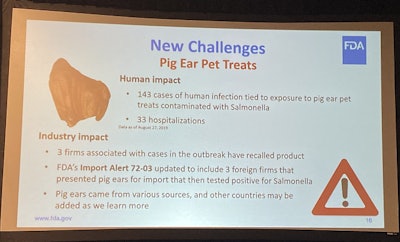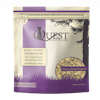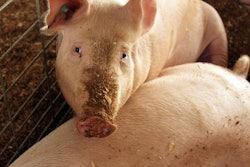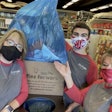
Inspections of U.S. pet food plants under the Food Safety Modernization Act (FSMA) have been under way since October 2018, and officials from the Food and Drug Administration (FDA) reported on findings and future plans during the 2019 Feed and Pet Food Joint Conference, hosted by the Pet Food Institute and National Grain and Feed Association in Kansas City, September 30-October 2.
In addition, less than a week after another recall of pig ear pet treats was announced, Steven M. Solomon, DVM, MPH, director of FDA’s Center for Veterinary Medicine, gave an update on the agency’s investigation to date. He said it had received reports of 143 cases of human infection tied to exposure to pig ear treats contaminated with Salmonella, with those resulting in 33 hospitalizations.
Seven serotypes of Salmonella are involved, Solomon added, and the illnesses are resistant to antibiotics and other medications. Three U.S. firms have been associated with the contaminated pig ear treats. Solomon said an import alert dated all the way back to 2003 related to foreign firms providing these pig ears – and that has now been updated to include three more foreign firms.
Hundreds of FSMA inspections undertaken in past year
Regarding FSMA inspections, Solomon said the agency has established a Food Safety Dashboard reporting FSMA performance by human food and animal feed (including pet food) companies. His colleague, Marla Keller, Ph.D., with CVM’s Office of Surveillance and Compliance gave details on pet food and animal feed inspections. The highest number of violations found during the inspections was in foreign supplier verification programs (FSVP), followed by preventive controls (PC).
Routine preventive control inspections of larger animal feed and pet food facilities under FSMA regulations began in October 2018. During FDA’s 2019 fiscal year (FY19), starting at the same time, pet food and animal feed businesses of all sizes were subject to routine current good manufacturing practice inspections (CGMPs) under FSMA, Keller said.
Thus, the greatest number of inspections were for CGMPs in FY19, at 516, with most of those (493) conducted by states and the remainder by FDA inspectors. Historically, 80% of animal food facility inspections have been conducted by states on FDA’s behalf, Solomon said. Currently, 32 states are still doing these inspections; for the future, the level of state inspector involvement is still being determined.
Only 15% of the CGMPs inspections combined returned violations, likely because pet and animal food companies are now accustomed to the relevant regulations and how to comply. On the other hand, while only 167 PC inspections total were conducted, they returned up to 20% violations, as businesses are still learning the relevant regulations.
The FSVP regulations are the least applicable and probably least understood; though only 20 such inspections were undertaken in FDA’s FY19, they returned 40% violations. Keller said the most common citations resulted from failure to even establish an FSVP when required, failure to document suppliers’ approval and failure to establish (or follow) written procedures for ensuring appropriate supplier verification activities.
Looking ahead: integrated food safety inspections
For FDA’s FY20, the agency and states will continue CGMPs inspections, plus add PC inspections of smaller businesses to ones for larger animal food companies, Keller said. In addition, she and Solomon both stressed that the agency is seeking to conduct more integrated inspections, encompassing possibly CGMPs, PC, FSVP, medicated feeds and compliance to other regulations. The idea is to increase efficiency for FDA and CVM, as well as decreasing the burden on businesses of preparing for and hosting multiple inspections, Solomon said.

















